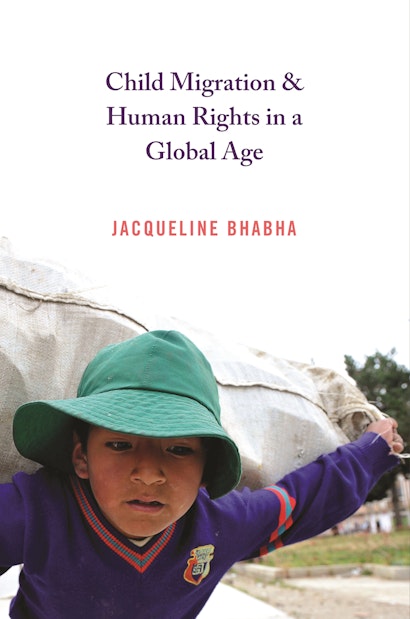Why, despite massive public concern, is child trafficking on the rise? Why are unaccompanied migrant children living on the streets and routinely threatened with deportation to their countries of origin? Why do so many young refugees of war-ravaged and failed states end up warehoused in camps, victimized by the sex trade, or enlisted as child soldiers? This book provides the first comprehensive account of the widespread but neglected global phenomenon of child migration, exploring the complex challenges facing children and adolescents who move to join their families, those who are moved to be exploited, and those who move simply to survive.
Spanning several continents and drawing on the stories of young migrants, Child Migration and Human Rights in a Global Age provides a comprehensive account of the widespread and growing but neglected global phenomenon of child migration and child trafficking. It looks at the often-insurmountable obstacles we place in the paths of adolescents fleeing war, exploitation, or destitution; the contradictory elements in our approach to international adoption; and the limited support we give to young people brutalized as child soldiers. Part history, part in-depth legal and political analysis, this powerful book challenges the prevailing wisdom that widespread protection failures are caused by our lack of awareness of the problems these children face, arguing instead that our societies have a deep-seated ambivalence to migrant children—one we need to address head-on.
Child Migration and Human Rights in a Global Age offers a road map for doing just that, and makes a compelling and courageous case for an international ethics of children’s human rights.
"[T]imely. . . . Bhabha goes beyond what might appear to be a specifically American crisis to situate the issue within global migration trends. . . . We have to hope that her call for a faster rate of progress will be taken up by those who are in a position to hasten it."—Don Flynn, Director of the Migrants' Rights Network
"Child Migration and Human Rights in a Global Age is a deeply thought-provoking work filled with both anecdotes and evidence that should spark reflection and debate from academics and government officials alike. For historians, particularly historians of international relations, it also presents a range of understudied subjects that are both worthy of deeper historical reflection and policy relevant."—Meredith Oyen, H-Net Reviews
"This wonderful book is the most significant study I know of that explores the implications for children's lives both of different forms of migration and of the ways in which these migrations are framed and responded to by state authorities."—Catherine Allerton, International Affairs
"Jacqueline Bhabha provide[s] a welcome analysis of the international migration regime and its profound failings. . . . The [book] will find eager audiences in undergraduate and graduate courses in human rights, and will be required references for human rights scholars working on migration and the broader issues of international human rights regimes, institutions, and challenges of human rights policy change."—Jelena Subotic, Perspectives on Politics
"Richly researched and passionately argued. . . . [This book] will find eager audiences in undergraduate and graduate courses in human rights, and will be required references for human rights scholars working on migration and the broader issues of international human rights regimes, institutions, and challenges of human rights policy change."—Jelena Subotic, Perspectives on Politics
"The book is crammed with cases of child migrants who endured suffering and oppression both before and after their migration journey and, through this, the author opens the readers' eyes to new ways of looking at the global problem of child migration. This is a necessary read for anyone working in migration or child issues."—Julia Muraszkiewicz, International Journal of Refugee Law
"Spanning multiple continents, [Bhabha's] superb book is a comprehensive examination of child migration across the globe and the accompanying human rights implications."—Daniel Gonzalez, Harvard Review of Latin America
"This is an important book on a much neglected subject. Not only is the massive problem of involuntary child migration in our chaotic world greatly underappreciated, but also the gigantic policy challenges involved are often wrongly perceived and widely misunderstood. We have reason to be grateful to Jacqueline Bhabha for bringing this powerfully informed, clear-headed analysis to a global problem of extreme urgency."—Amartya Sen, coauthor of An Uncertain Glory: India and Its Contradictions
"Courageous, remarkably erudite, and deeply moving, this important book is the work of a thinker and activist at the height of her powers. Read it for rich historical perspective, wise legal analysis, and practical policy recommendations that address the vulnerabilities of children in the international landscape today."—Linda K. Kerber, author of No Constitutional Right to Be Ladies: Women and the Obligations of Citizenship
"Bhabha challenges the wisdom of current approaches to the protection of children in the context of migration. This book is a major contribution to the field. Never before has so much rich material been pulled together in a single, easily readable, and enticing volume that has the rights of children at its core."—Susan L. Bissell, chief of child protection, UNICEF


